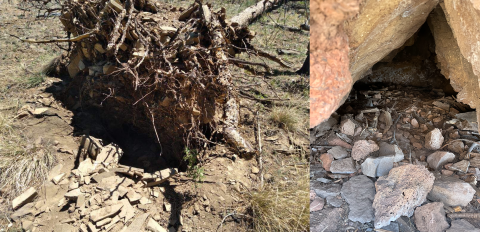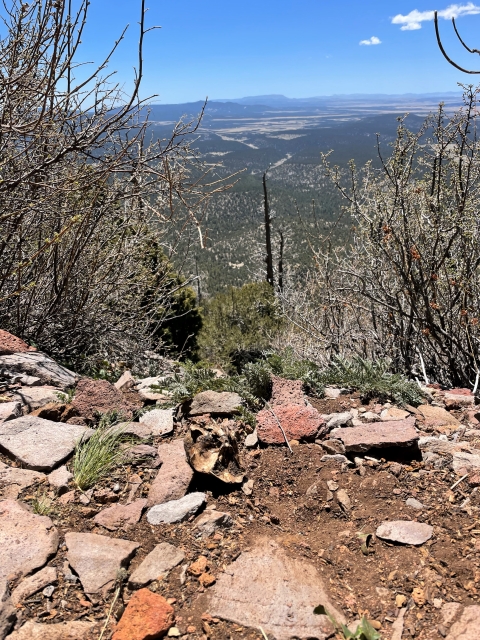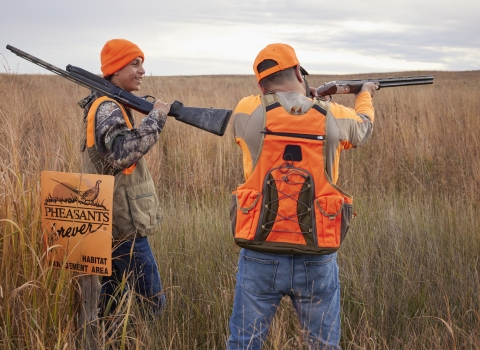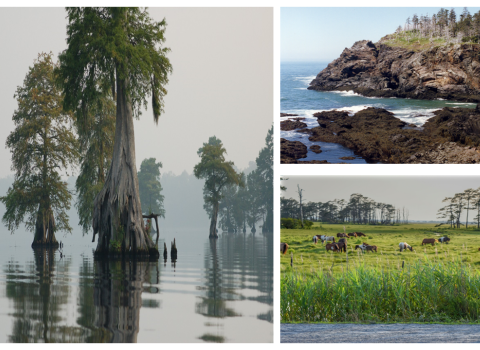Every spring, pregnant female Mexican wolves set out to find the perfect place for their dens. This den will serve as a place to safely give birth to (whelp) her pups, nurse her litter, and raise them until they are old enough to leave the den.
Choosing the Den
According to Allison Greenleaf, biologist with the Mexican Wolf Recovery Program, the more experienced, i.e., the more litters of pups a female wolf has whelped and raised, the better she is at choosing and digging out her den.
“First time breeders may have more exposed dens, whereas experienced breeders will choose dens that have better protection from the wind and rain,” she says.
Some females will return to the same den site each year, while others will pick new locations. A good den is secluded and close to water. Mexican wolves often dig their dens in rock crevices, under root balls of fallen trees, or in the ground. They are often on steep, rocky slopes.
“I find that wolf dens are often in the most beautiful spots,” says Greenleaf. “The terrain is intense and hard for humans to climb, but the views are amazing.”
Digging the Den
A few days before she gives birth, the pregnant female will dig the den herself. All dens have a narrow opening to keep out other predators, like bears, but the inside of a wolf den varies greatly in size and depth. Some have multiple channels and tunnels, while others are simpler. In all dens, there is one larger area where the female will whelp her pups and nurse them.
Once the den is ready and time comes, the female will enter the den in preparation for whelping. As part of this process, she will pull tufts of thick fur from her belly. She does this to better expose her nipples for nursing, and it may also offer more heat to pups when sleeping and nursing.
Whelping and Helping
Females whelp their pups after a 63-day gestation period. She will do this part alone, as the male (and packmates if she has them) are elsewhere. After whelping, the female will stay inside the dens with the pups, which are born blind and helpless, to nurse and care for them. Other members of the pack will carry out hunting duties during this time, bringing back food to the new mom. Wolf pups are born around the same time as elk calve their young, providing a ready source of food for the pack and the new additions.
Pups will begin to emerge from dens at around six weeks of age, but the den will continue to serve as home base until pups are about 8-12 weeks old. At this point, they are ready learn how to be wild wolves with the help of their pack, no longer needing the safety of the den.





